
Actionable Gamification: Beyond Points, Badges, and Leaderboards
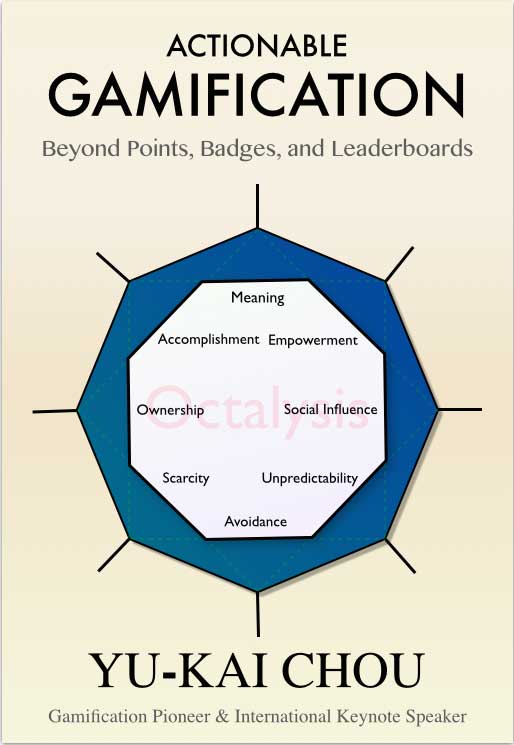
If you’re even remotely interested into the psychology of why people do what they do, you’re going to like “Gamification.”
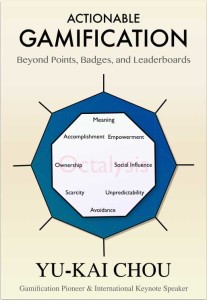
Human-Focused Design optimizes for motivation and engagement over traditional Function-Focused Design
Yu-kai Chou gave an eye-opening workshop tonight digging into how companies use “Human-Focused Design” to get customers to buy more, stay long-term customers, improve ROI and learn about why this all happens.
He went the full four hours and it felt like he was just getting started. He showed a few slides from his 3-day course and I can see why: there’s so much information here and he loves talking about it.
If you’re curious about why …
- Can kids focus for hours (if not days) on a game but not homework.
- Will you pay real money for digital goods in a game to make it go faster so you … play less. (In case you missed it, you’re playing a free game, but you’ll pay real dollars to play it less.)
- Chess is still popular without ever having upgraded to Chess 2.0.
Chou also has a book that delves even deeper into the subject and would be recommended as the 4-hour course was, frankly, overwhelming with just so much information and, at least for me, so many new concepts to ponder.
From the book blurb, ” … studies on game mechanics and behavioral psychology have become proliferate. However, few people understand how to merge the two fields into experience designs that reliably increases business metrics and generates a return on investment.”
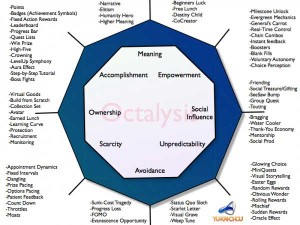
“His Octalysis framework is both elegantly simple and intricately complex.” –Michael Wu, Chief Scientist of Lithium
He analyzes why consumers do what they do, why companies do what they do (based on what they think consumers will do). If you’d think it’s all about World of Warcraft, think more about how LinkedIn added the progress bar to indicate how far you are in filling out your profile and how that pushed 53% more people fill out their profiles.
NOTE: I think it’s a good practice to review books or workshops or, well, pretty much anything, because it forces you to summarize, think about what you really learned, and more often than not, it reminds you of things that you might have forgotten were important at the time.
For his last trick, he showed a video about how a city put together a “speeding lottery.” You could win money for driving under the speed limit. But the real fun part is that the money you’ll earn is paid out by those who drive over the speed limit and pay the fines! The video explains it well, see below. From The Fun Theory.
Learn more about Yu-kai Chou and his work at his site: yukaichou.com.

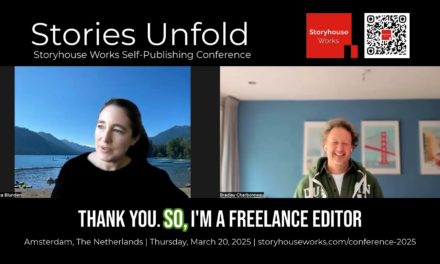
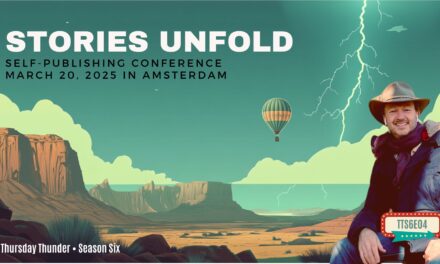


























Trackbacks/Pingbacks